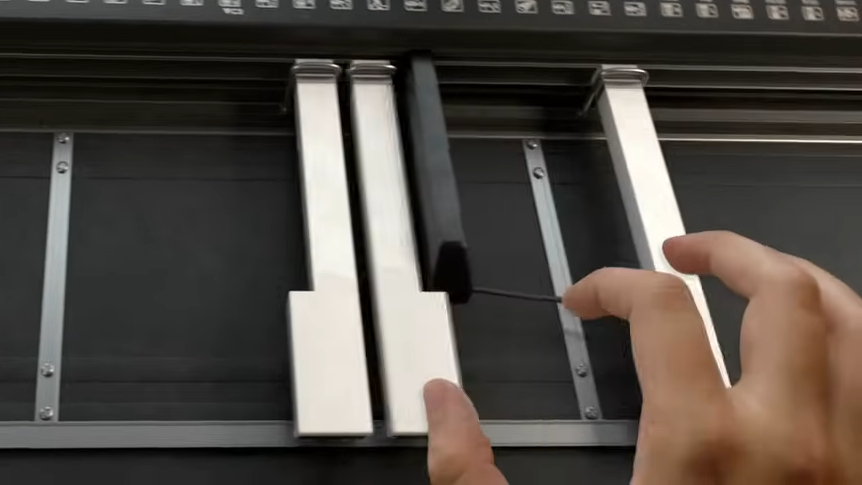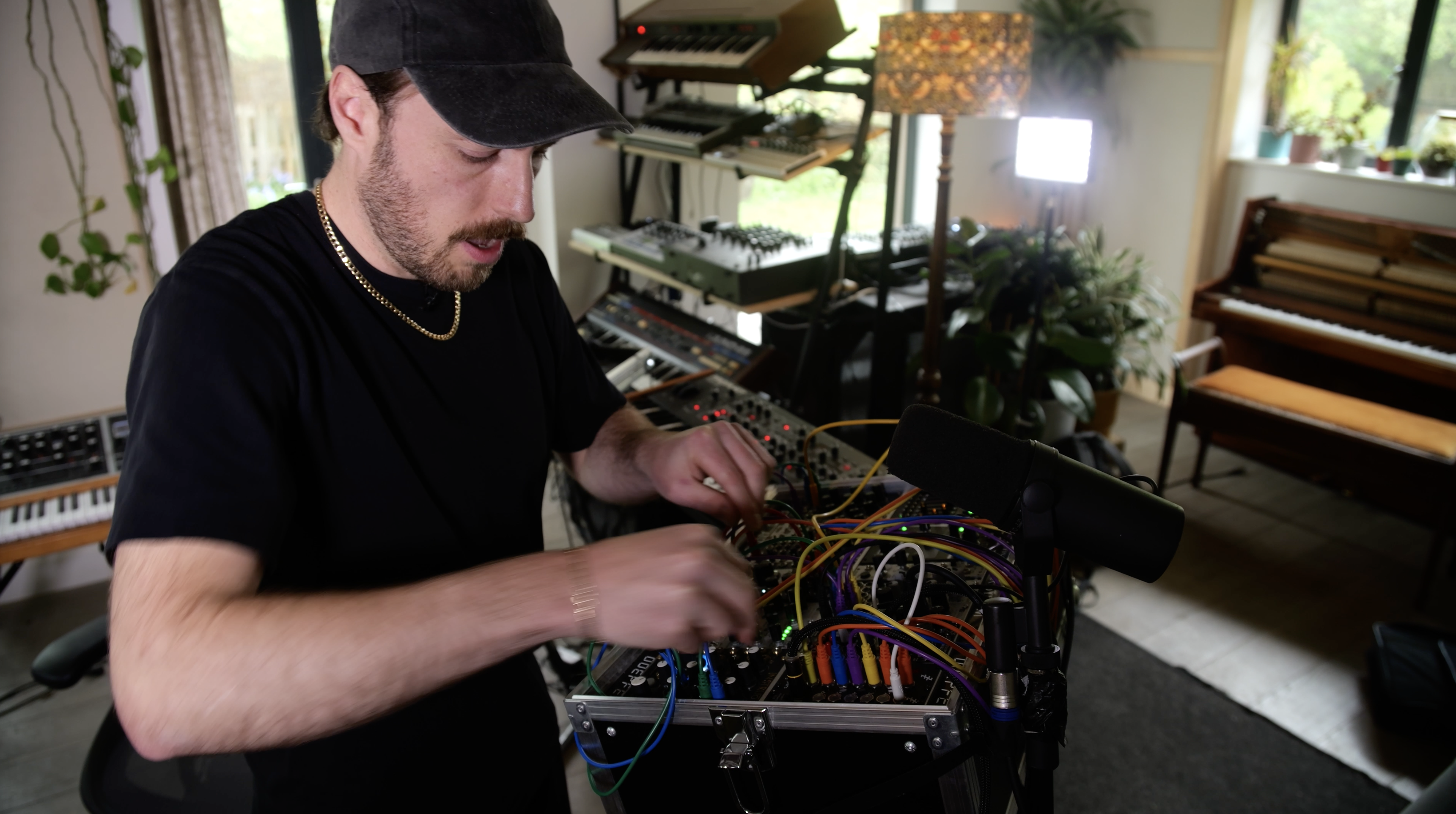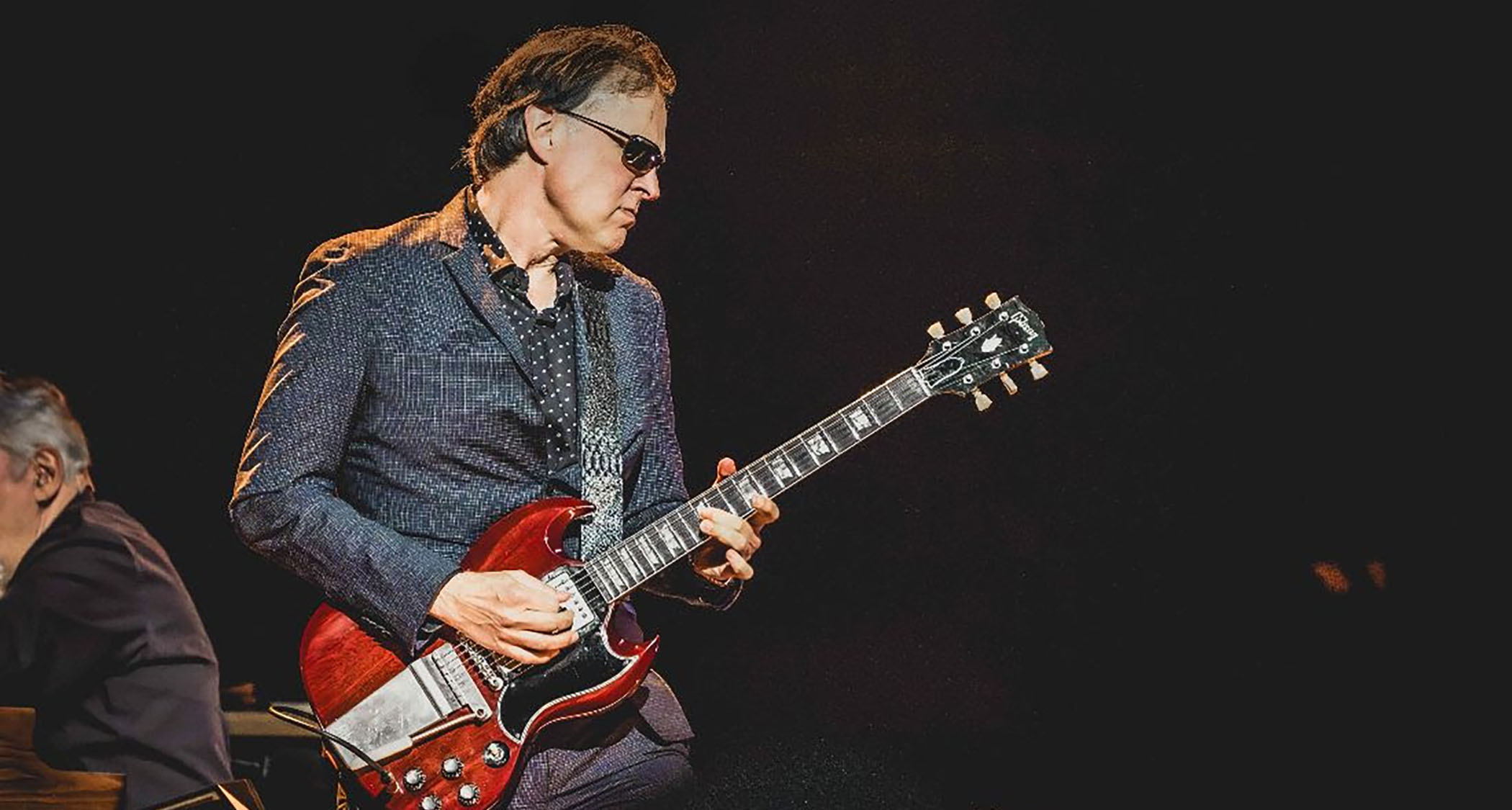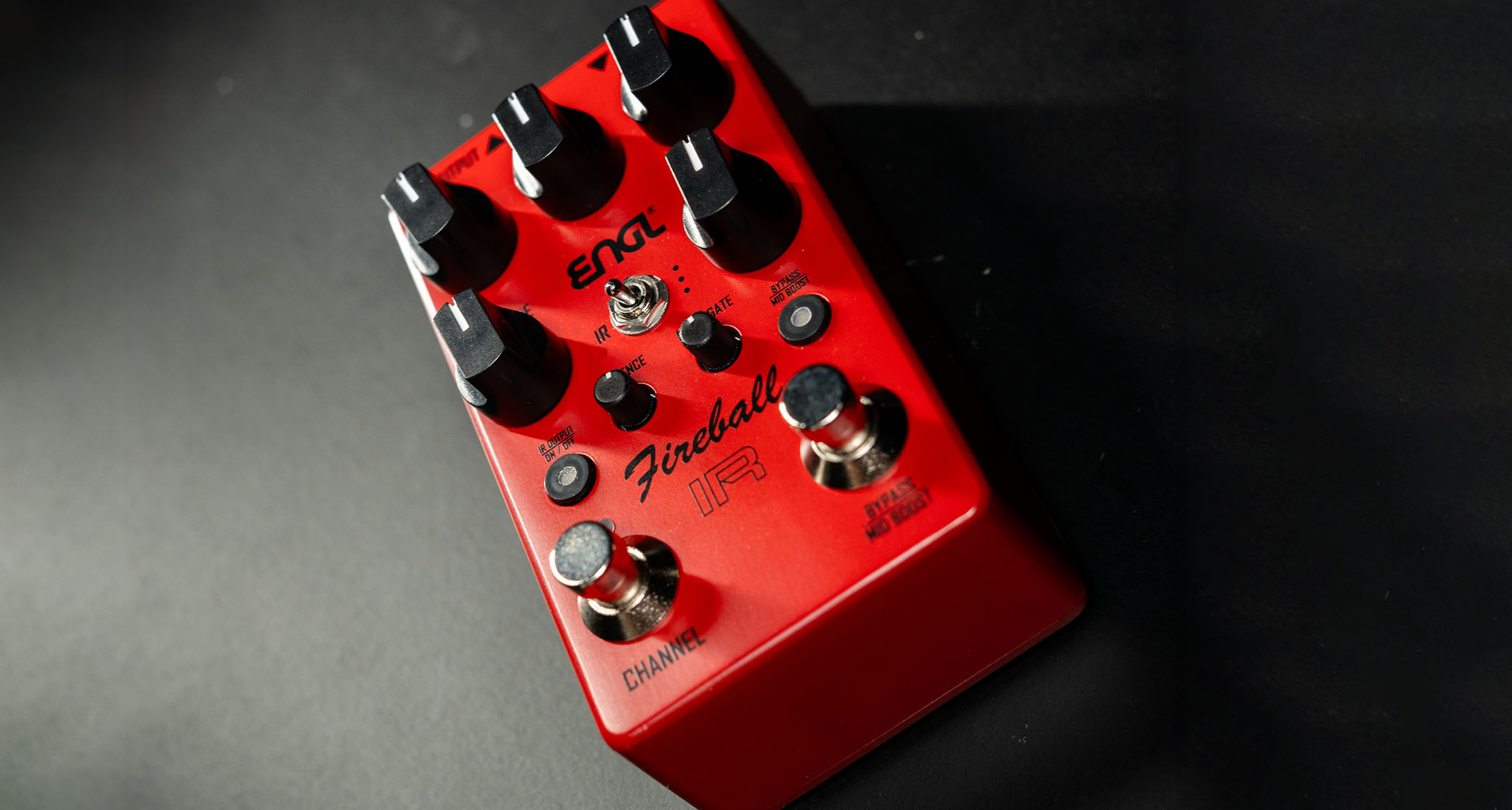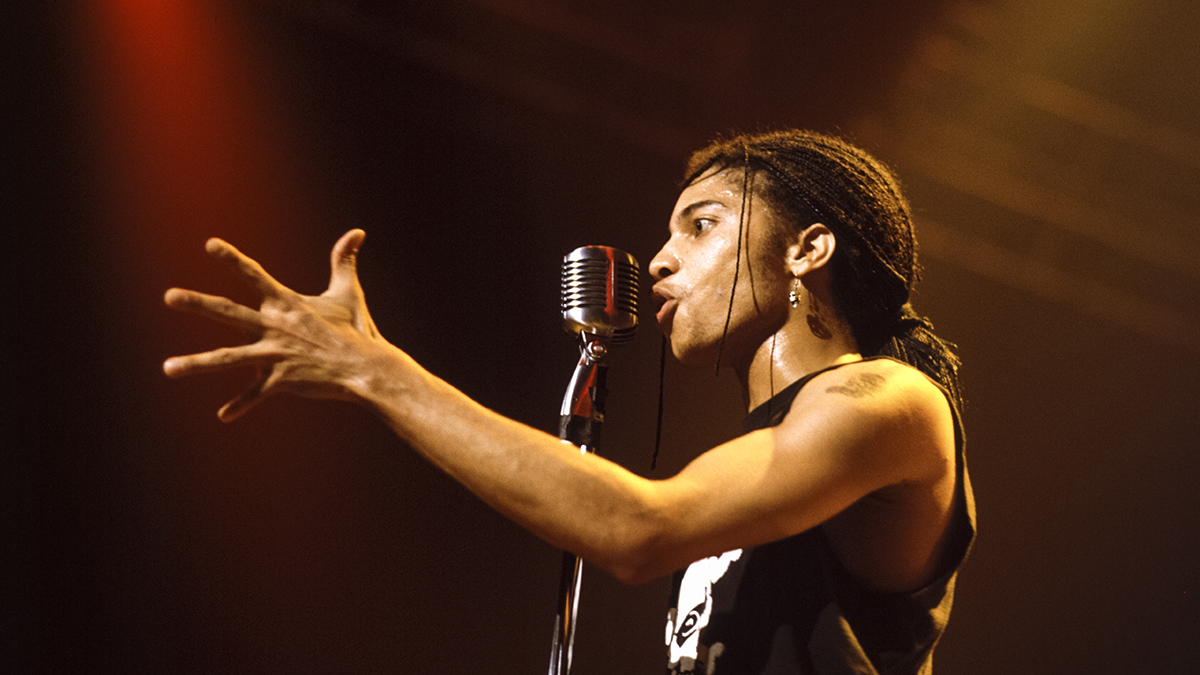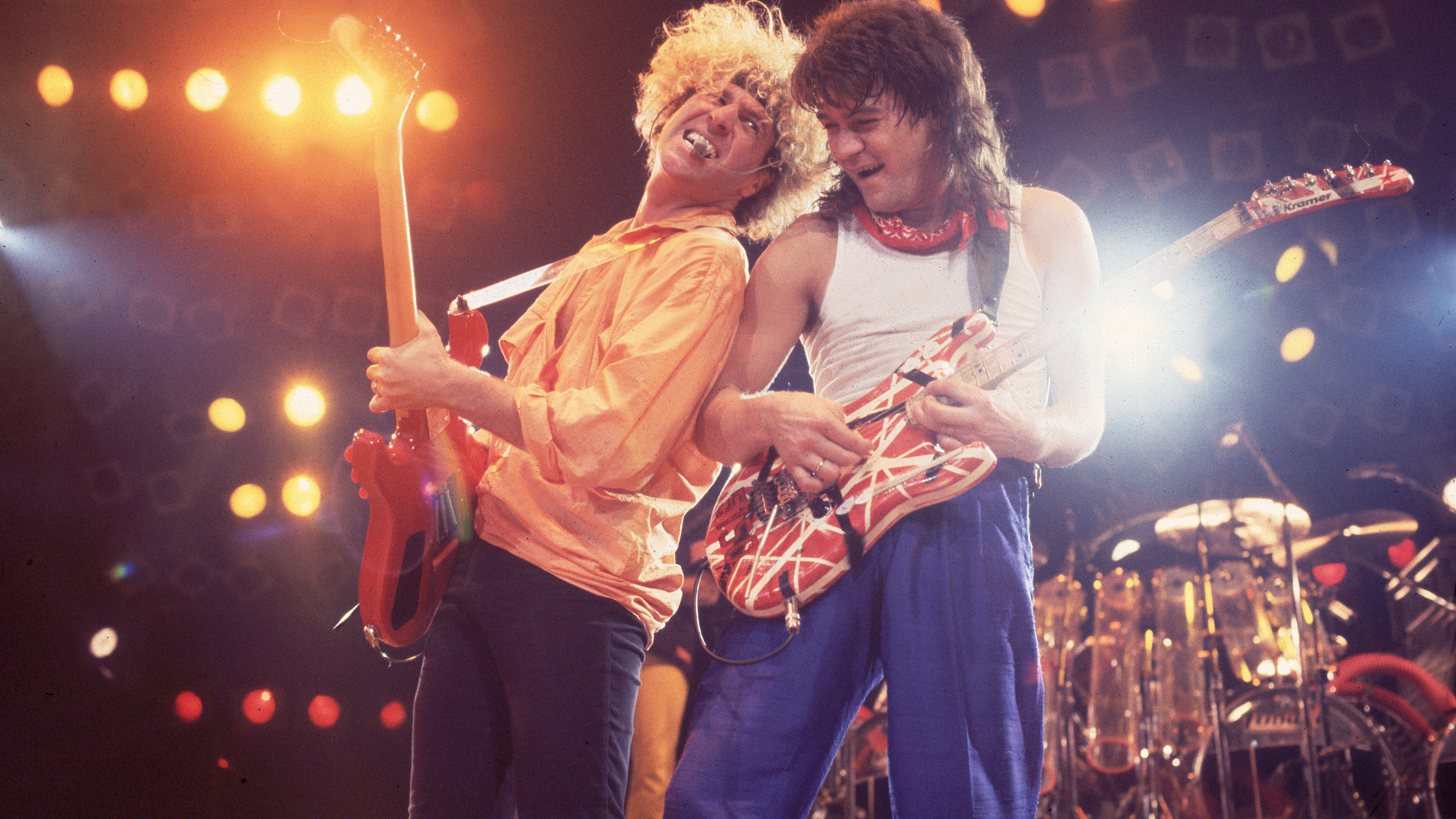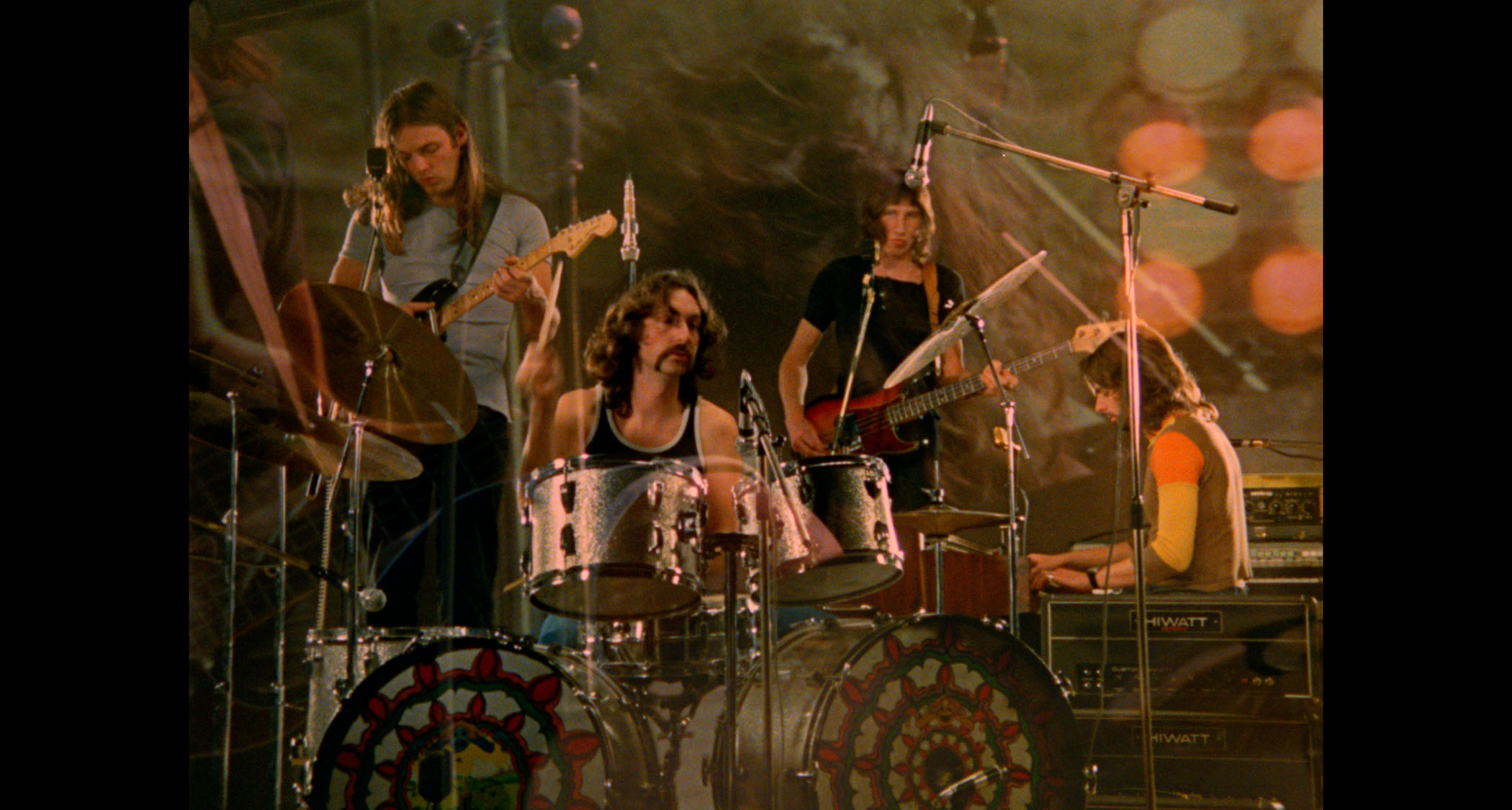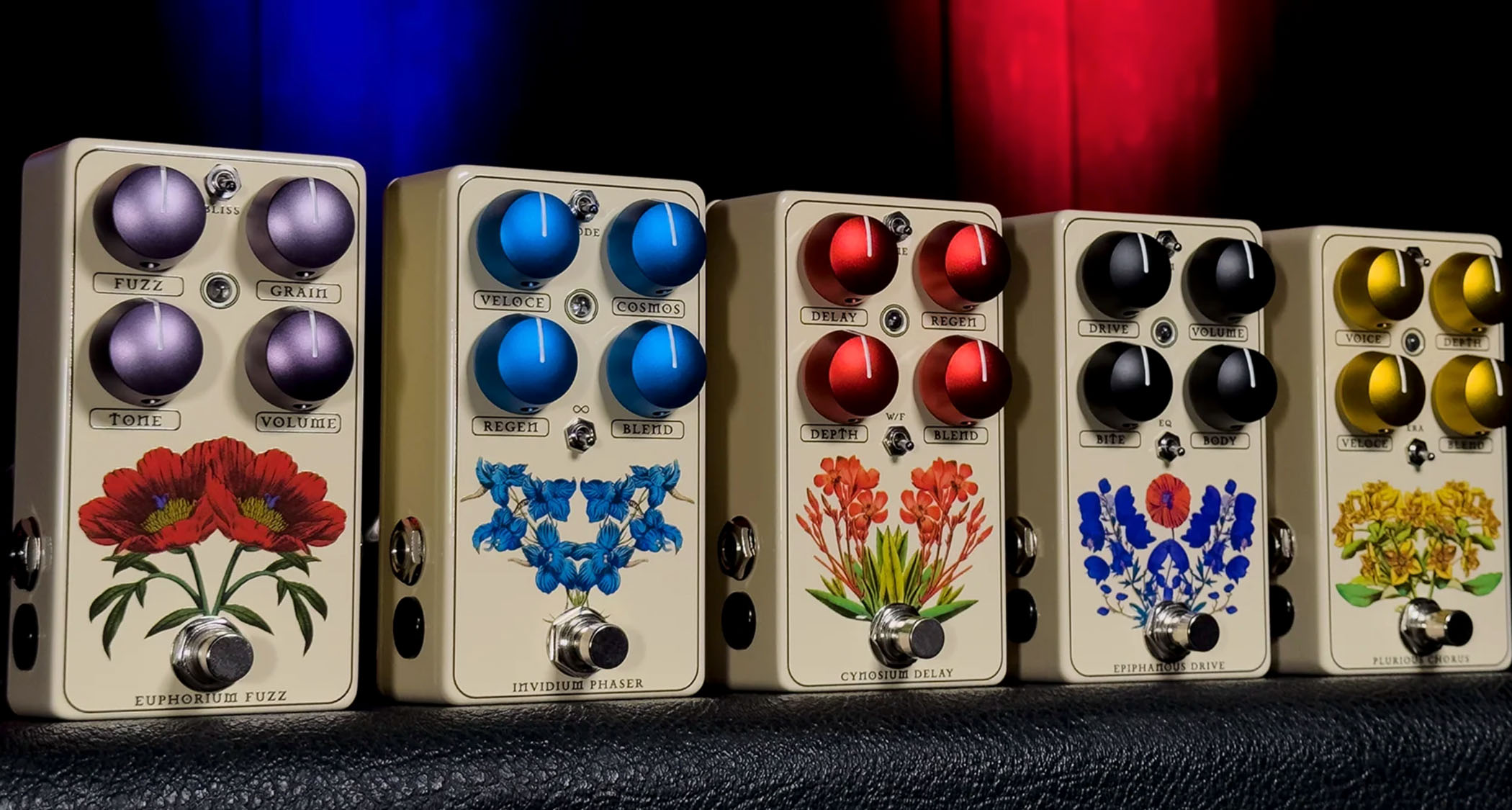
Peter Frampton talks Frampton Comes Alive! track-by-track
“I didn’t have huge expectations for Frampton Comes Alive!" says Peter Frampton. "My previous album, Frampton, had sold about 300,000 copies – a decent amount but not mind-blowing. There was talk at the label that maybe the live record could go gold. I was hoping we could do it, but I wasn't sure."
Released on 6 January 1976, Frampton Comes Alive! quickly became a behemoth, ushering in the era of the mega album - Fleetwood Mac's Rumours, The Eagles' Hotel California, the soundtrack to Saturday Night Fever and so on. “I remember when I got the call," says Frampton. "We had gone to number one in the US and were selling a million copies a week. It was more than I could have ever wished for. It was surreal. The whole thing was too much to take in."
The overwhelming success of Frampton Comes Alive! would haunt its creator into the decade that followed. "You can't repeat something like that album," Frampton says. "It'll drive you crazy. You have to let it go. You have to make peace with it."
Thirty-five years after its release, Frampton has come to embrace the double album which has virtually defined an era. "It is iconic," he says. "One doesn't plan on that - it's what happens after the fact. Even the title will be around long after I’m not. ‘Frampton Drops Dead!’ will be the headline everywhere. Hopefully, I’ll be able to laugh about it from beyond.”
Earlier this year, Frampton embarked on a tour to celebrate the 35th anniversary of Frampton Comes Alive! During the expansive show, he and his four-piece band play the legendary album from start to finish. The outing has proved so popular that he's continuing the run into 2012. The next leg of the tour hits the UK with these dates:
Manchester Bridgewater Hall - 11 November
Cambridge Corn Exchange - 12 November
London Hammersmith Apollo - 13 November
Birmingham Symphony Hall - 15 November
Glasgow Royal Concert Hall - 16 November
Tickets can be ordered by calling 08700 603 777. For further info, visit www.peterframpton.com.
On the following pages, Peter Frampton takes a track-by-track look at Frampton Comes Alive! - offering his thoughts on the songs as he wrote and recorded them, as well as what it feels like to play them now.
“Frampton Comes Alive! is the album I’ll always be remembered for," Frampton says. "I’m very proud of the music that’s on it. Why it exploded the way it did and continues to live on are things that can’t fully be explained. But I’m extremely grateful to have touched so many people’s lives with it – then and now. I’ve got kids coming to shows with their parents and grandparents, and everybody knows the record by heart. We have a fantastic time, too! You can’t complain about that.”
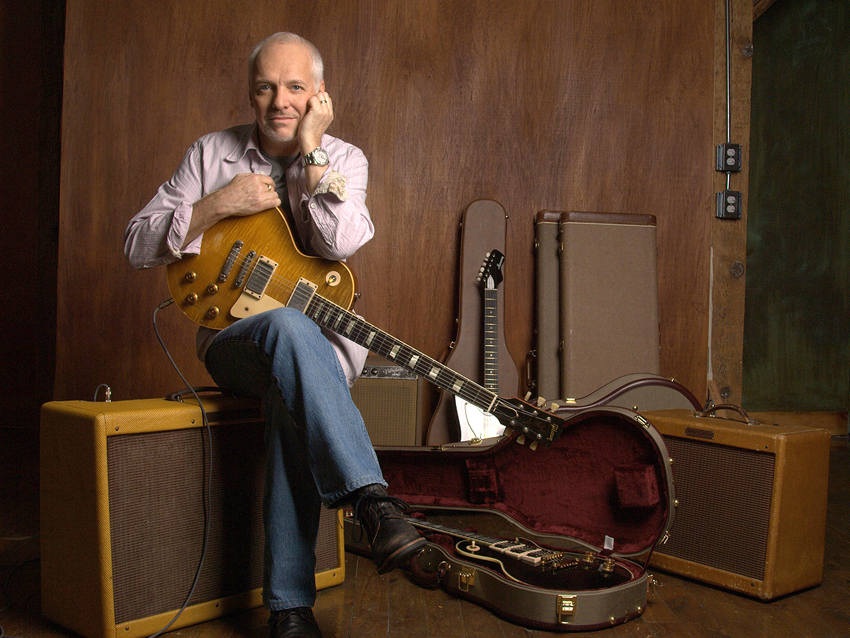
Something's Happening
“We haven’t done the song in years, not until this tour. My dear friend, the amazing Stanley Sheldon, who was with me for the original Frampton Comes Alive! is back in the band on bass. He’s obviously played it with me many times, but the other guys haven’t.
“In preparation for this tour, I found myself getting very excited to perform Something’s Happening live again. It was so funny - when we started playing it in rehearsal, everybody had these huge, beaming smiles on their faces; they could sense the excitement it would generate in front of an audience.
“Of course, I remember when we played it at Winterland in San Francisco back in 1975. It was the first time we’d headlined in a major city. I was so nervous that we’d flop, but when we walked on stage and played this song, 7,000 people went berserk – for us! That was a real thrill, and quite a surprise.
“Incredibly, we got the same reaction when we started this tour in Red Bank, New Jersey. People went apeshit! And they go crazy every night we hit the stage and play Something's Happening. We love to see that. What a great feeling.”
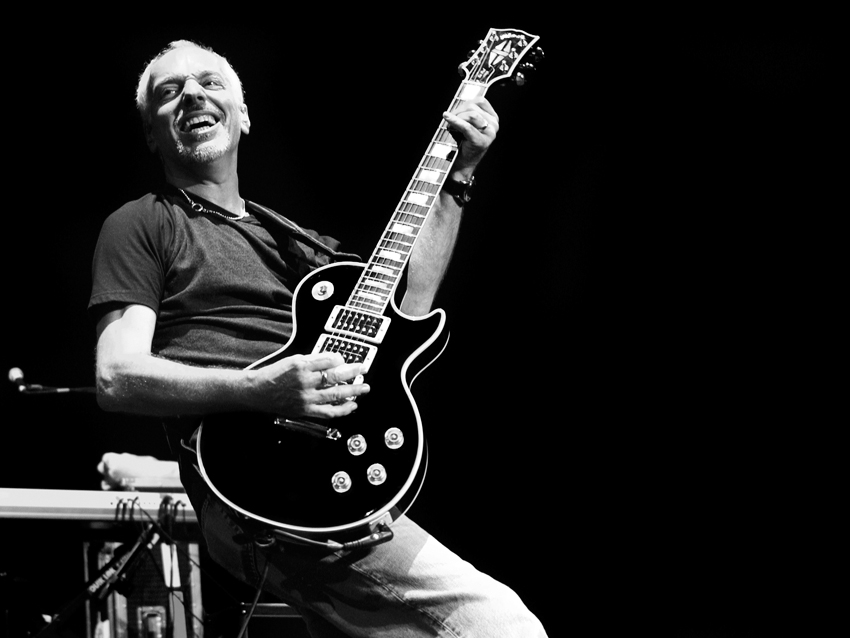
Doobie Wah
“Another song we haven’t played in a long time, probably 30 years. When we were practicing it in rehearsal, my sound mixer, Vinnie Kowalski – a great guy who’s been with me for 14 years – told me it was making him feel very emotional. Suddenly it dawned on him that he was going to mix Frampton Comes Alive! with the guy who actually recorded the album. That meant something quite important to him.
“I don’t say that immodestly, by the way. To get a reaction like that to a song of mine – any song – is incredible. You write a song, somebody responds - that's the whole idea, right?
“And the great thing about Doobie Wah is that it feels so new to me again. I don’t get tired of playing my songs, but it’s terrific to go back to one we haven’t done in a while and find new and different things going on. A lot of fun.”
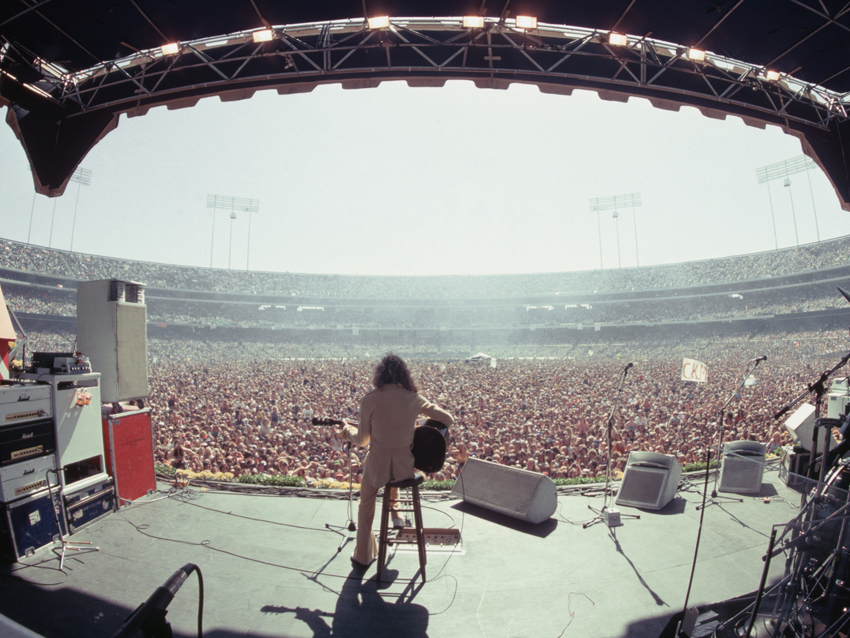
Show Me The Way
“A year before Frampton Comes Alive! we had released the studio version of Show Me The Way as a single – it was on the Frampton album – and it totally tanked. Nothing.
“It was pretty strange to put out the live version and watch it go through the roof. It exploded! I mean, I just couldn’t believe it. It was still the same song. What had changed?
“I should point out, though, that AOR [Album Oriented Rock] was the big radio format at the time. Singles weren’t that important for rock acts. Led Zeppelin didn’t need a single – AOR stations played all of their songs, whole albums, in fact. And they were playing Frampton Comes Alive! like crazy. If you put on an AOR station - any station - you’d hear pretty much all the songs from that record.
“Having a hit single didn’t hurt any. It definitely helped. A lot of people bought Show Me The Way and that made them buy the album. The whole thing became a speeding train that couldn’t be stopped.”
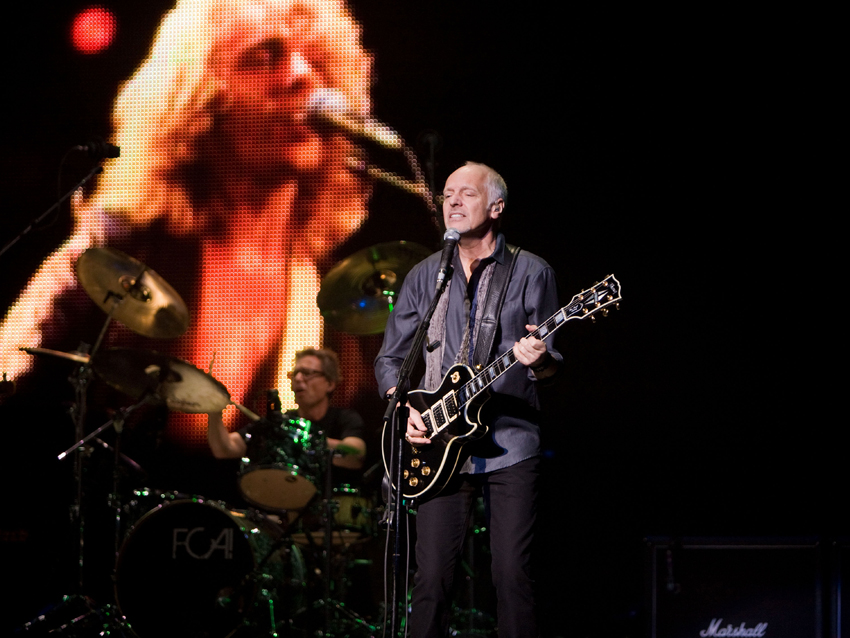
It's A Plain Shame
“A good, straightforward rock ‘n’ roller that I first recorded for the Wind Of Change album. We haven’t been doing it live, either, so it feels very fresh. I enjoy playing it. It’s another one that takes people back.
“I’ll tell you, the look on the faces in the audience, the sounds they make, the cheers...when we launch into a song like this, it's extraordinary.”
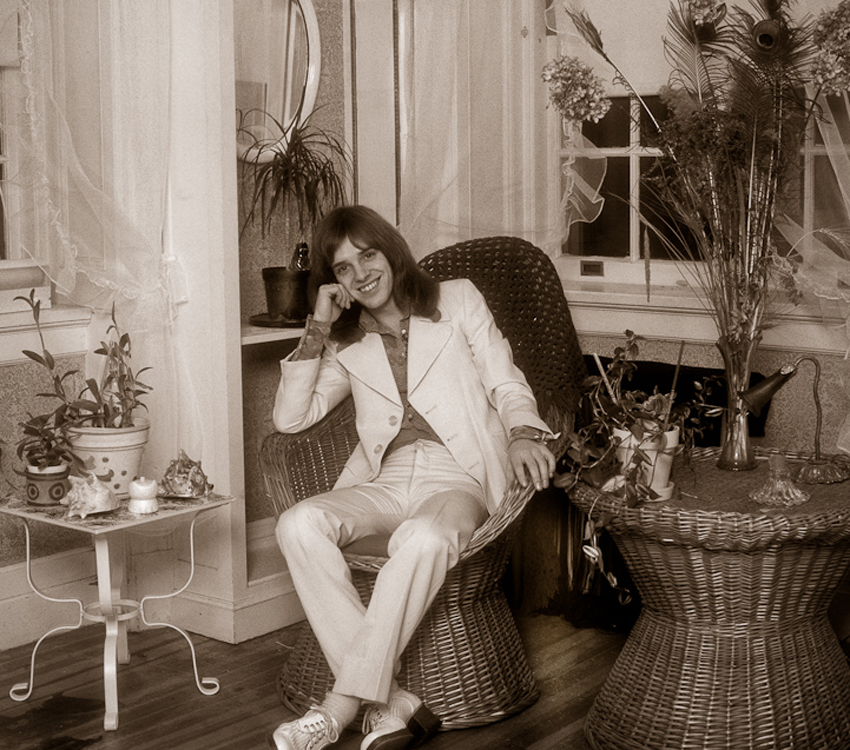
All I Want To Be (Is By Your Side)
"We two do versions of it. In the first set, we do the acoustic version, and in the second set, we play it electric. It’s the only song that we do twice.
“Both versions get great reactions. People love to sing along. As a performer, that just gives you chills.”
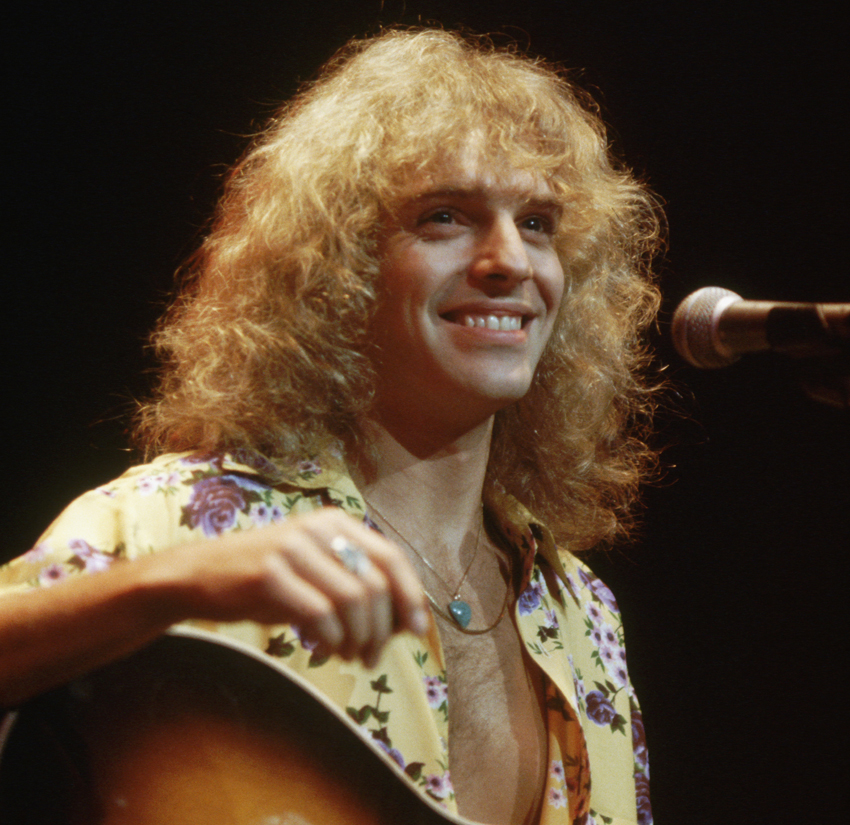
Wind Of Change
“The title track to my first solo record. For this song, I actually stole the guitar tuning from George Harrison. On weekends I would go to his place in Friar Park, the inner sanctum.
“George had all of these guitars. There were probably half a dozen acoustics just sitting around the living room area. I picked one up and discovered that it had the strangest tuning. It had two low Ds and then a high D – then an A and F sharps.
“Wind Of Change is the only song I ever wrote with this particular tuning. It’s got a real different kind of sound. It's amazing to think about where it all came from.”
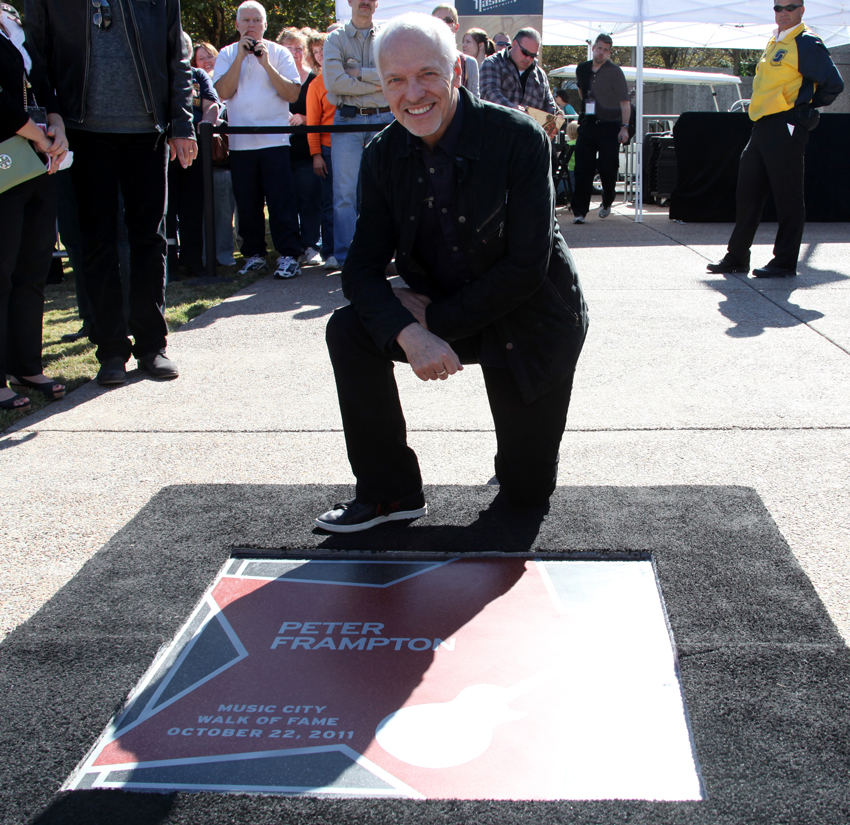
Baby, I Love Your Way
“I wrote it the same day that I wrote Show Me The Way. That was my ‘way’ series – two songs, but not bad ones. I don’t know why, but I was big on the word ‘way.’
“People love to play Baby, I Love Your Way at their weddings. They even play it for births and deaths – whatever the occasion, it seems to fit. Over the years, it's been used in lots of movies, and it’s been covered by other artists more than any of my songs.
"I’ve written a standard...which is pretty incredible to me.”
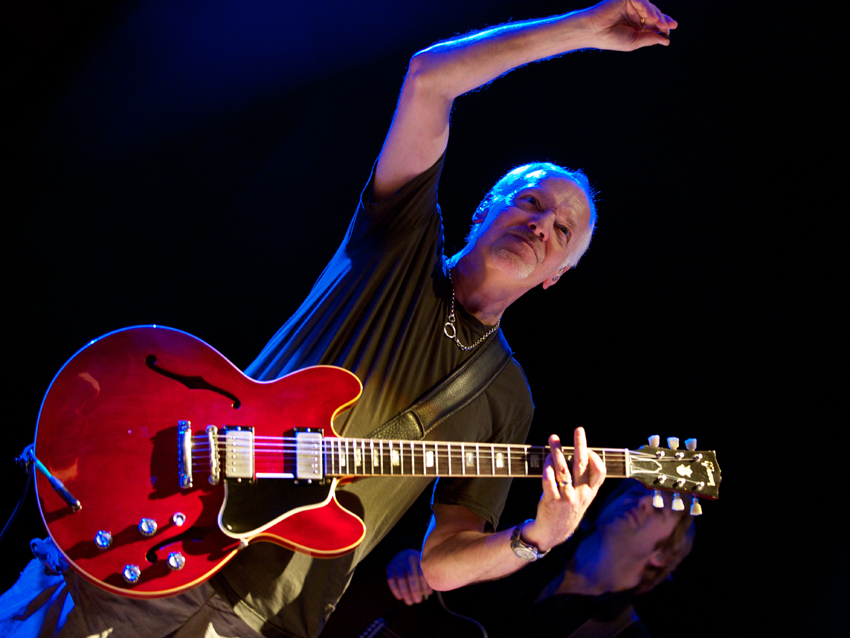
I Wanna Go To The Sun
“Along with Something’s Happening, I wrote this song on the piano. Bob Mayo, of course, took over the keyboard duties for the live album.
“The essence of the song is ‘I’m going to make it one day.’ I wasn’t just going to go up into the sky, I was going to go even higher, right to the sun. Boy, was that prophetic, or what?
“It’s funny singing the song nowadays; everything I had written was to come true in ways I never thought possible.”
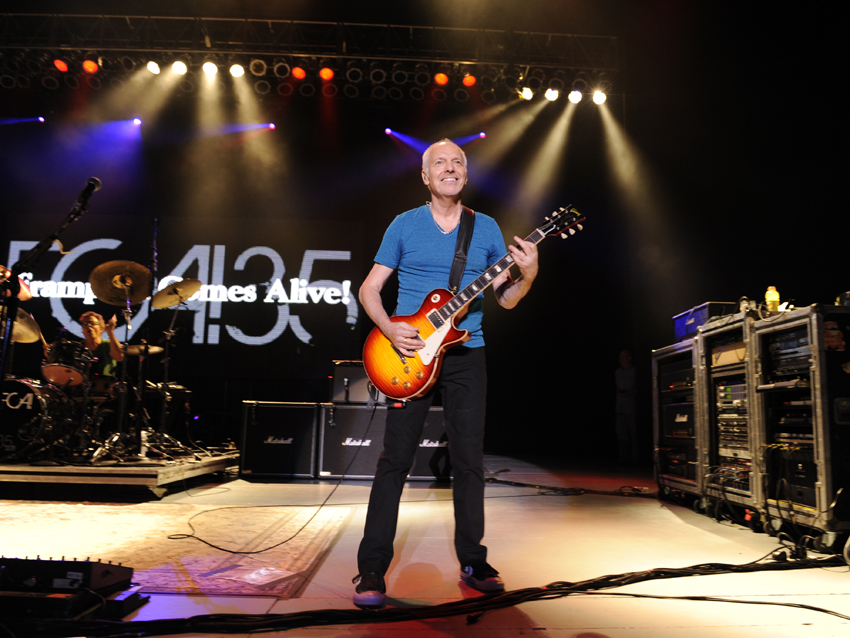
Penny For Your Thoughts
“A nice little add-on track for the Frampton album. We were right at the end of mixing the record, and I said that I had this little bit that would be cool to stick on as a juxtaposition before we went into (I’ll Give You) Money.
“We recorded it and put it on, and it worked. I’ve been playing it during the acoustic set, and it goes down perhaps better than all of the other songs."
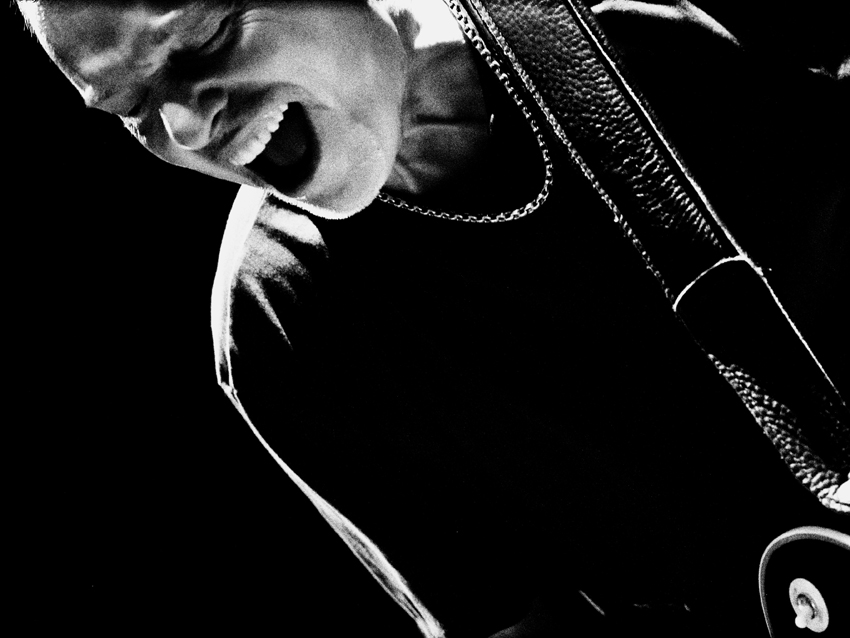
(I'll Give You) Money
“We were playing at the Wollman Skating Rink in Central Park in New York - this was when they had shows there in the '70s - and during the soundcheck I came up with a cool riff. I started playing it and people were pretty blown away, so I knew I had something.
“I went home and wrote the lyrics to the chord sequence. We recorded the song for the Frampton album, and quite quickly it became a staple of my shows.
“Nowadays, when we play the track live, I have a major guitar battle on stage with Adam Lester. He’s a wonderful player in my band. It’s a lot of fun, and the song has really developed into a very important part of the show.”
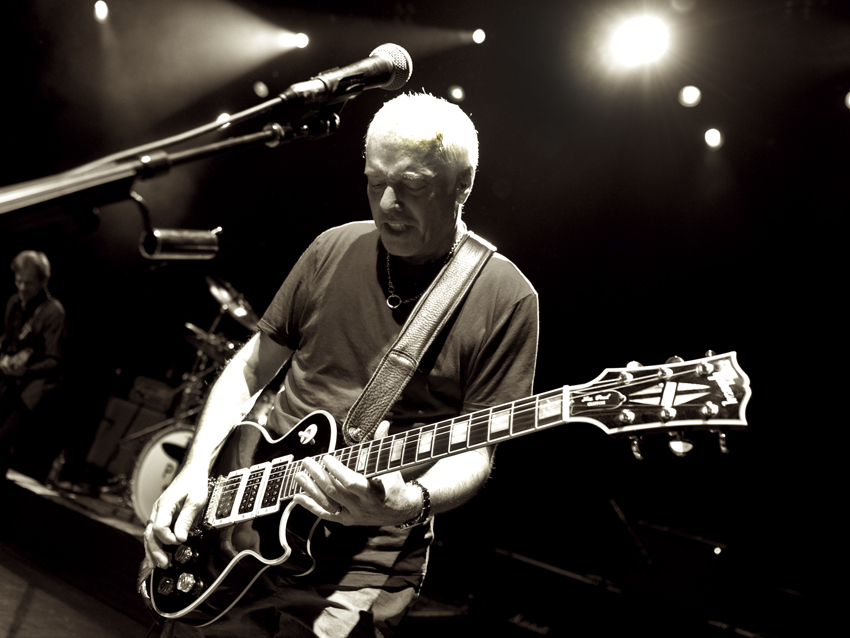
Shine On
“Shine On is the one track that’s from my Humble Pie period. There’s still a lot of Humble Pie fans out there, so in the second set we do another one of the band’s songs, Four Day Creep.
“[Producer] Glyn Johns always thought that Shine On should’ve been a single for Humble Pie, but everybody else thought it was too poppy. It’s always been a favorite of mine.”
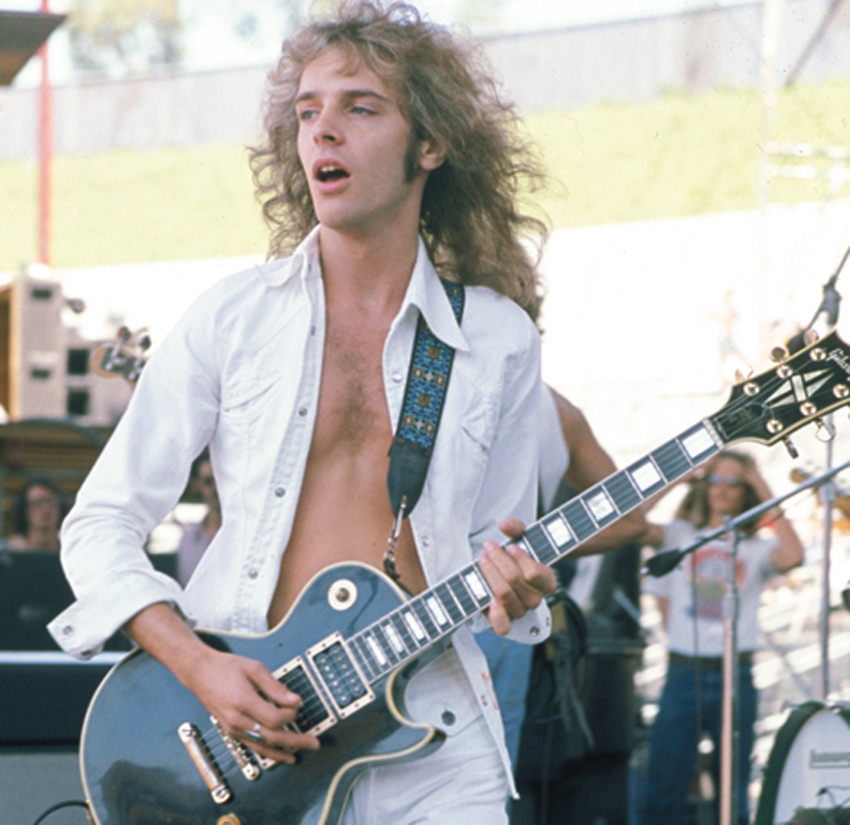
Jumpin' Jack Flash
“Not one of my songs, of course! We had been doing it as one of the encores for quite a long time, and when we recorded the Wind Of Change album, Andy Brown, who had been in the band The Herd with me, and who was playing bass on some of the tracks, suggested that I put Jumpin’ Jack Flash on the record.
“The big difference was when Andy said, ‘Why don’t you do the song, but do it like Wes Montgomery?’ So we worked out this version with octaves, which sounded good, and in the studio it developed into a jam. When we took it back out live, it got even longer and longer. It’s a great song to jam on and play around with.”
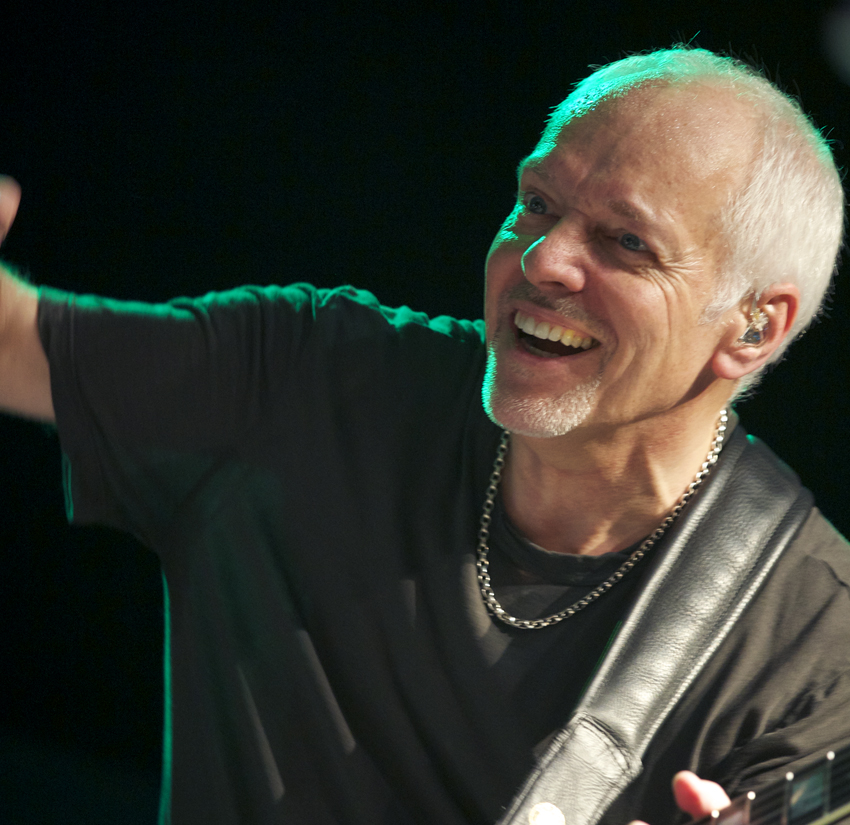
Lines On My Face
“This is my favorite track from Frampton Comes Alive! because it allows me to play more guitar. Depending on the night, I can stretch it out as long or any way I want. It’s a beautiful chord sequence to solo over and get expressive with.
“In fact, I have such a good time playing it that I sometimes wonder, Did I really write it? Oh yeah, I guess I did! That’s how much I like it.
“I don’t think I’ve done a show in which I haven’t performed the song. I just have to play it. It sets the tone for me, and for the evening. On the live album, it’s second to last, but in the act, it’s always been the third song. I love playing it.”
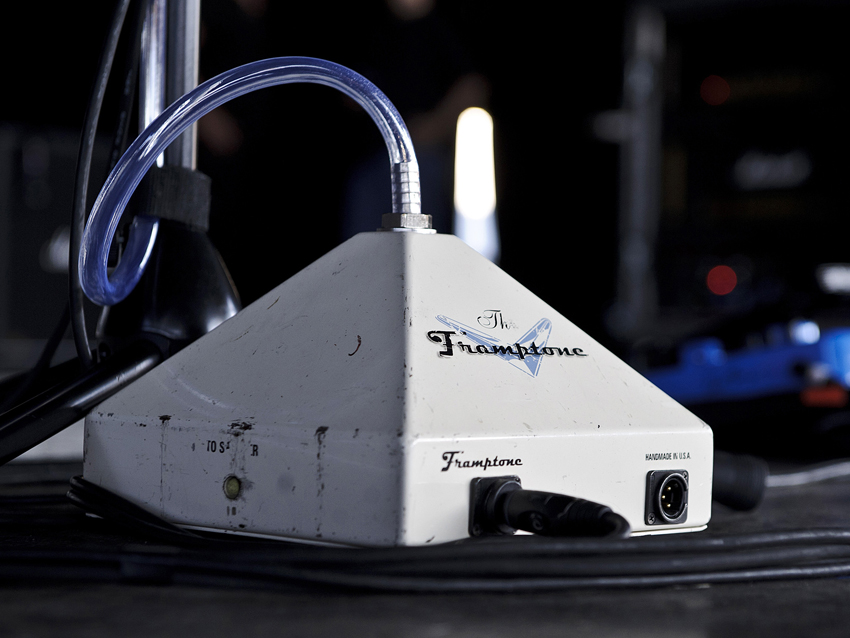
Do You Feel Like We Do?
“A jam that came out of my Frampton’s Camel time. We were rehearsing to promote the Wind Of Change album, and I started playing around with a riff that became the song. I had written the chord sequence for the chorus the night before, so once I had the riff I wrote out the words right there in the rehearsal room.
“When I play the solo, I don’t think about anything. If I think, it won’t be any good. And I never play the solo the same way twice. Certain melodies I’ll do, of course, but a free-form solo passage is my chance to let go.
“I wasn’t using the talk box for the first couple of years we played the song. Once I got the talk box, however, I started using it on Show Me The Way and Do You Feel Like We Do?
“It was such a different sound at the time; it just blew everybody’s minds. People still respond to it because it’s analog – and they associate it with me. I wasn’t the first guy to use the talk box: there was Joe Walsh, Jeff Beck, Pete Drake, Stevie Wonder, Alvino Rey – the list goes on and on. But I popularized it because of the songs on Frampton Comes Alive?”
Joe is a freelance journalist who has, over the past few decades, interviewed hundreds of guitarists for Guitar World, Guitar Player, MusicRadar and Classic Rock. He is also a former editor of Guitar World, contributing writer for Guitar Aficionado and VP of A&R for Island Records. He’s an enthusiastic guitarist, but he’s nowhere near the likes of the people he interviews. Surprisingly, his skills are more suited to the drums. If you need a drummer for your Beatles tribute band, look him up.
"At first the tension was unbelievable. Johnny was really cold, Dee Dee was OK but Joey was a sweetheart": The story of the Ramones' recording of Baby I Love You
"Reggae is more freeform than the blues. But more important, reggae is for everyone": Bob Marley and the Wailers' Catch a Fire, track-by-track
"At first the tension was unbelievable. Johnny was really cold, Dee Dee was OK but Joey was a sweetheart": The story of the Ramones' recording of Baby I Love You
"Reggae is more freeform than the blues. But more important, reggae is for everyone": Bob Marley and the Wailers' Catch a Fire, track-by-track

